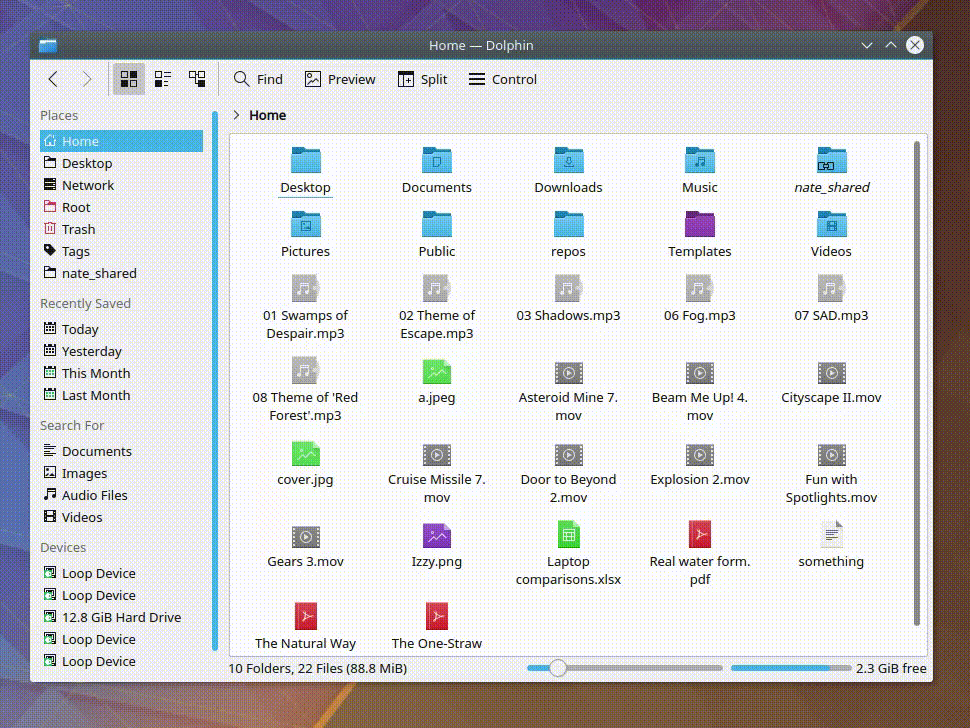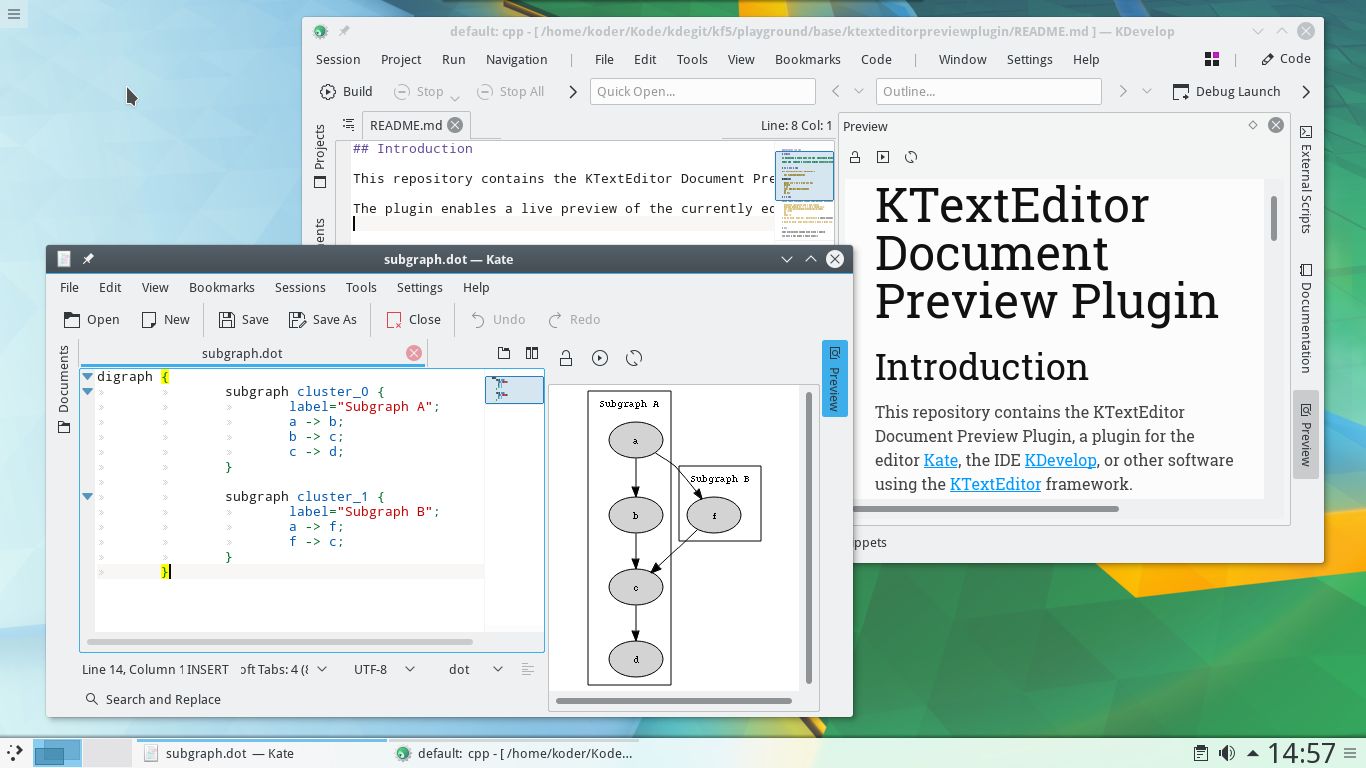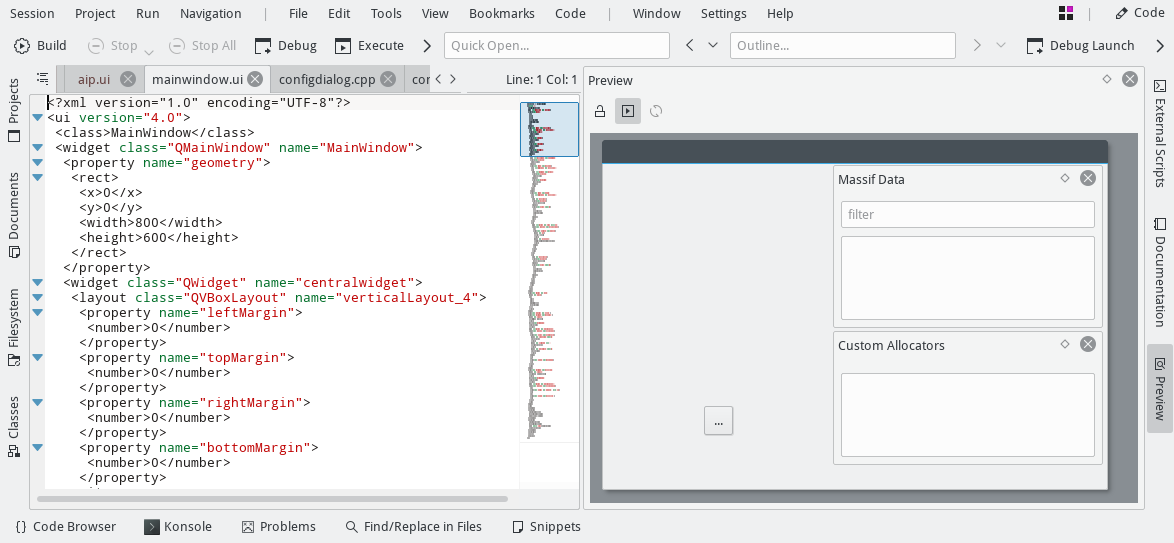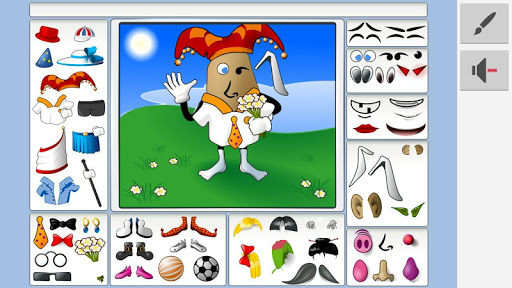KDE wydało Aplikacje KDE 17.12.0
14 grudnia 2017. Dzisiaj KDE wydało Aplikacje KDE 17.12.0
We continuously work on improving the software included in our KDE Application series, and we hope you will find all the new enhancements and bug fixes useful!
Co nowego w Aplikacjach KDE 17.12
System

Dolphin, our file manager, can now save searches and limit the search only to folders. Renaming files is now easier; simply double click on the file name. More file information is now at your hands, as the modification date and origin URL of downloaded files are now displayed in the information panel. Additionally, new Genre, Bitrate, and Release Year columns have been introduced.
Grafika
Our powerful document viewer Okular gained support for HiDPI displays and Markdown language, and the rendering of documents that are slow to load is now shown progressively. An option is now available to share a document via email.
Gwenview image viewer can now open and highlight images in the file manager, zooming is smoother, keyboard navigation has been improved, and it now supports the FITS and Truevision TGA formats. Images are now protected from being accidentally removed by the Delete key when they are not selected.
Multimedia
Kdenlive now uses less memory when handling video projects which include many images, default proxy profiles have been refined, and an annoying bug related to jumping one second forward when playing backward has been fixed.
Narzędzia

Ark's zip support in the libzip backend has been improved. Kate has a new Preview plugin that allows you to see a live preview of the text document in the final format, applying any available KParts plugins (e.g. for Markdown, SVG, Dot graph, Qt UI, or patches). This plugin also works in KDevelop.
Narzędzia programistów

Kompare now provides a context menu in the diff area, allowing for quicker access to navigation or modification actions. If you are a developer, you might find KUIViewers' new in-pane preview of UI object described by Qt UI files (widgets, dialogs, etc) useful. It now also supports KParts streaming API.
Biuro
The Kontact team has been hard at work improving and refining. Much of the work has been modernizing the code, but users will notice that encrypted messages display has been improved and support has been added for text/pgp and Apple® Wallet Pass. There is now an option to select IMAP folder during vacation configuration, a new warning in KMail when a mail gets reopened and identity/mailtransport is not the same, new support for Microsoft® Exchange™, support for Nylas Mail and improved Geary import in the akonadi-import-wizard, along with various other bug-fixes and general improvements.
Gry

KTuberling can now reach a wider audience, as it has been ported to Android. Kolf, KsirK, and Palapeli complete the porting of KDE games to Frameworks 5.
Więcej przenoszenia do Szkieletów KDE 5
Even more applications which were based on kdelibs4 have now been ported to KDE Frameworks 5. These include the music player JuK, the download manager KGet, KMix, utilities such as Sweeper and KMouth, and KImageMapEditor and Zeroconf-ioslave. Many thanks to the hard-working developers who volunteered their time and work to make this happen!
Applications moving to their own release schedule
KStars now has its own release schedule; check this developer's blog for announcements. It is worth noting that several applications such as Kopete and Blogilo are no longer shipped with the Application series, as they have not yet been ported to KDE Frameworks 5, or are not actively maintained at the moment.
Bug Stomping
More than 110 bugs have been resolved in applications including the Kontact Suite, Ark, Dolphin, Gwenview, K3b, Kate, Kdenlive, Konsole, Okular, Umbrello and more!
Pełny dziennik zmian
If you would like to read more about the changes in this release, head over to the complete changelog. Although a bit intimidating due to its breadth, the changelog can be an excellent way to learn about KDE's internal workings and discover apps and features you never knew you had.
Głoś słowo
Non-technical contributors are an important part of KDE’s success. While proprietary software companies have huge advertising budgets for new software releases, KDE depends on people talking with other people. Even for those who are not software developers, there are many ways to support the KDE Applications release. Report bugs. Encourage others to join the KDE Community. Or support the nonprofit organization behind the KDE community
Please spread the word on the Social Web. Submit stories to news sites, use channels like delicious, digg, reddit, and twitter. Upload screenshots of your new set-up to services like Facebook, Flickr, ipernity and Picasa, and post them to appropriate groups. Create screencasts and upload them to YouTube, Blip.tv, and Vimeo. Please tag posts and uploaded materials with “KDE”. This makes them easy to find, and gives the KDE Promo Team a way to analyze coverage for this KDE Applications release.
Wgrywanie pakietów binarnych Aplikacji KDE
Pakiety
Niektórzy z dostawców systemów Linux/UNIX uprzejmie dostarczyli pakiety Aplikacji KDE dla niektórych wersji swoich dystrybucji, a w pozostałych przypadkach, zrobili to wolontariusze ze społeczności. Pakiety binarne, a także uaktualnienia, mogą stać się dostępne w nadchodzących tygodniach.
Położenie pakietów
Po bieżący wykaz dostępnych pakietów binarnych, o których Projekt KDE został powiadomiony, odwiedź Wiki Społeczności.
Budowanie Aplikacji KDE
Pełny kod źródłowy aplikacji KDE można pobrać nieodpłatnie z](https://download.kde.org/stable/applications/17.12.0/src)Polecenia do zbudowania i wgrania Aplikacji KDE są dostępne na 17.12.0 stronie informacyjnej Aplikacji KDE
Wspieranie KDE
KDE is a Free Software community that exists and grows only because of the help of many volunteers that donate their time and effort. KDE is always looking for new volunteers and contributions, whether it is help with coding, bug fixing or reporting, writing documentation, translations, promotion, money, etc. All contributions are gratefully appreciated and eagerly accepted. Please read through the Supporting KDE page for further information or become a KDE e.V. supporting member through our Join the Game initiative.
O KDE
KDE is an international technology team that creates free and open source software for desktop and portable computing. Among KDE’s products are a modern desktop system for Linux and UNIX platforms, comprehensive office productivity and groupware suites and hundreds of software titles in many categories including Internet and web applications, multimedia, entertainment, educational, graphics and software development. KDE software is translated into more than 60 languages and is built with ease of use and modern accessibility principles in mind. KDE’s full-featured applications run natively on Linux, BSD, Windows, Haiku, and macOS.
Uwagi do znaku towarowego.
KDE® oraz logo Środowiska Pulpitu K® są zarejestrowanymi znakami towarowymi KDE e.V..
Linux jest zarejestrowanym znakiem towarowym Linusa Torvaldsa. UNIX jest zarejestrowanym znakiem towarowym Otwartej Grupy w Stanach Zjednoczonych i innych państwach.
Wszystkie pozostałe znaki towarowe i prawa autorskie z tego ogłoszenia są własnością ich odpowiednich właścicieli.
Kontakt dla prasy
Po więcej szczegółów wyślij nam wiadomość: press@kde.org